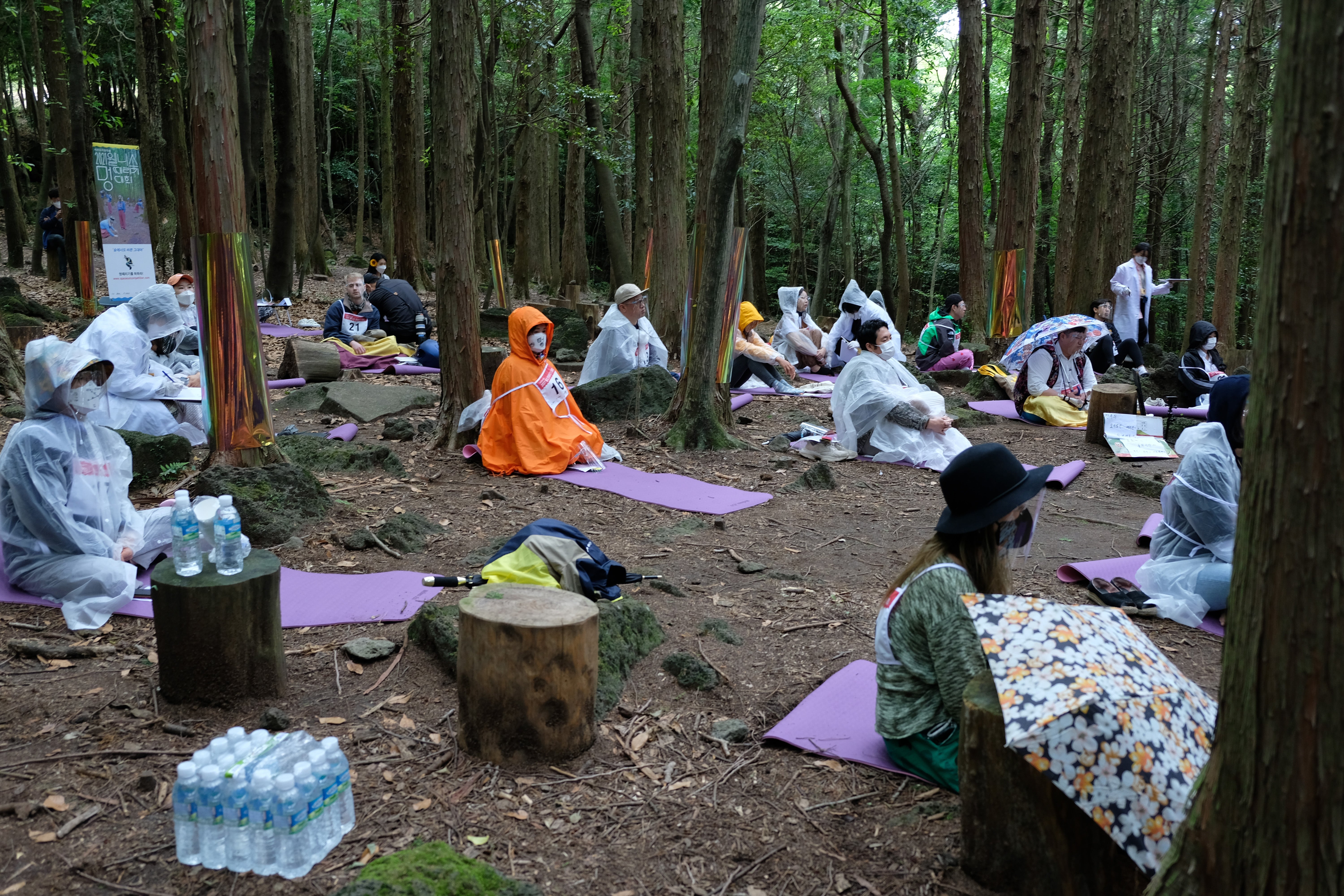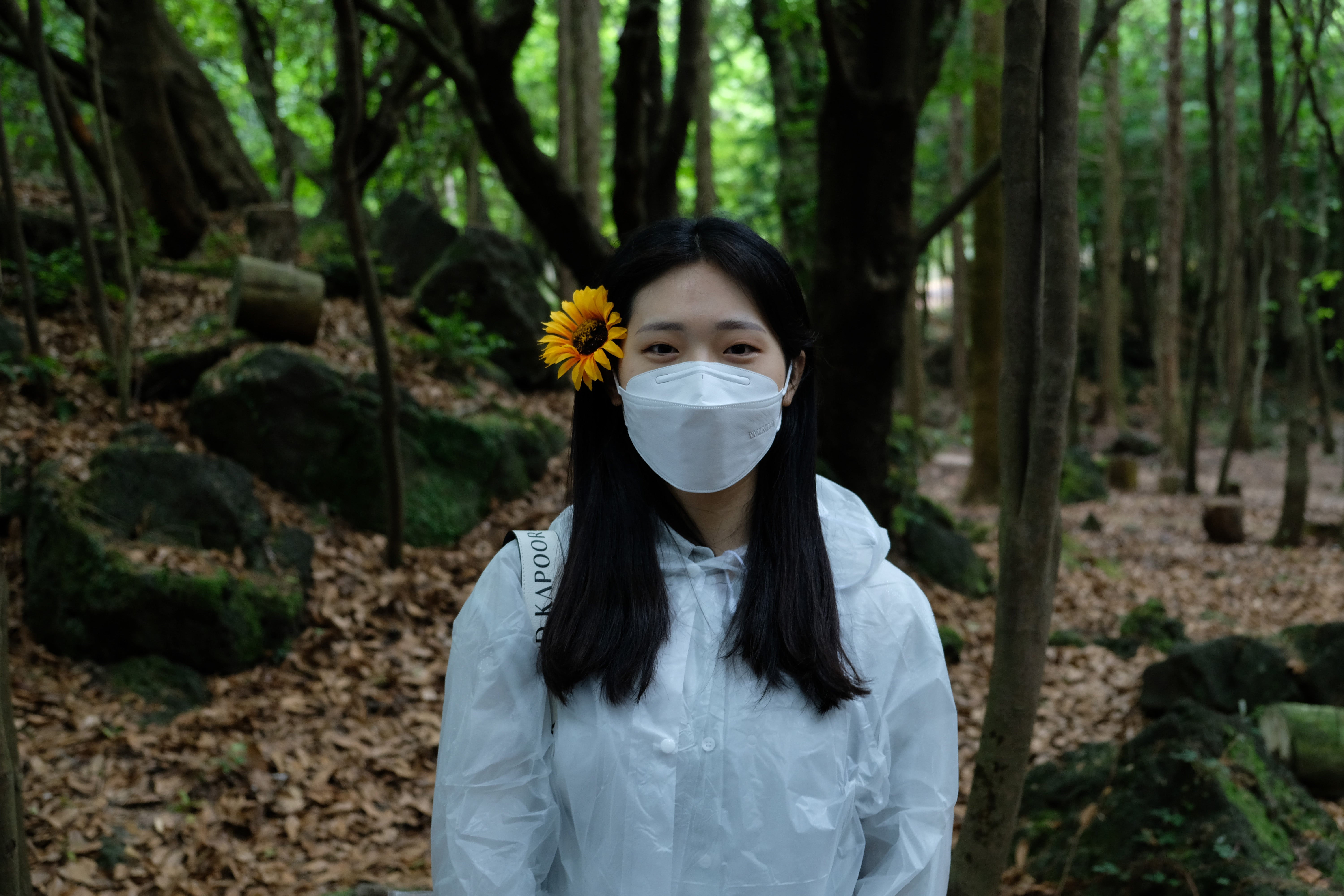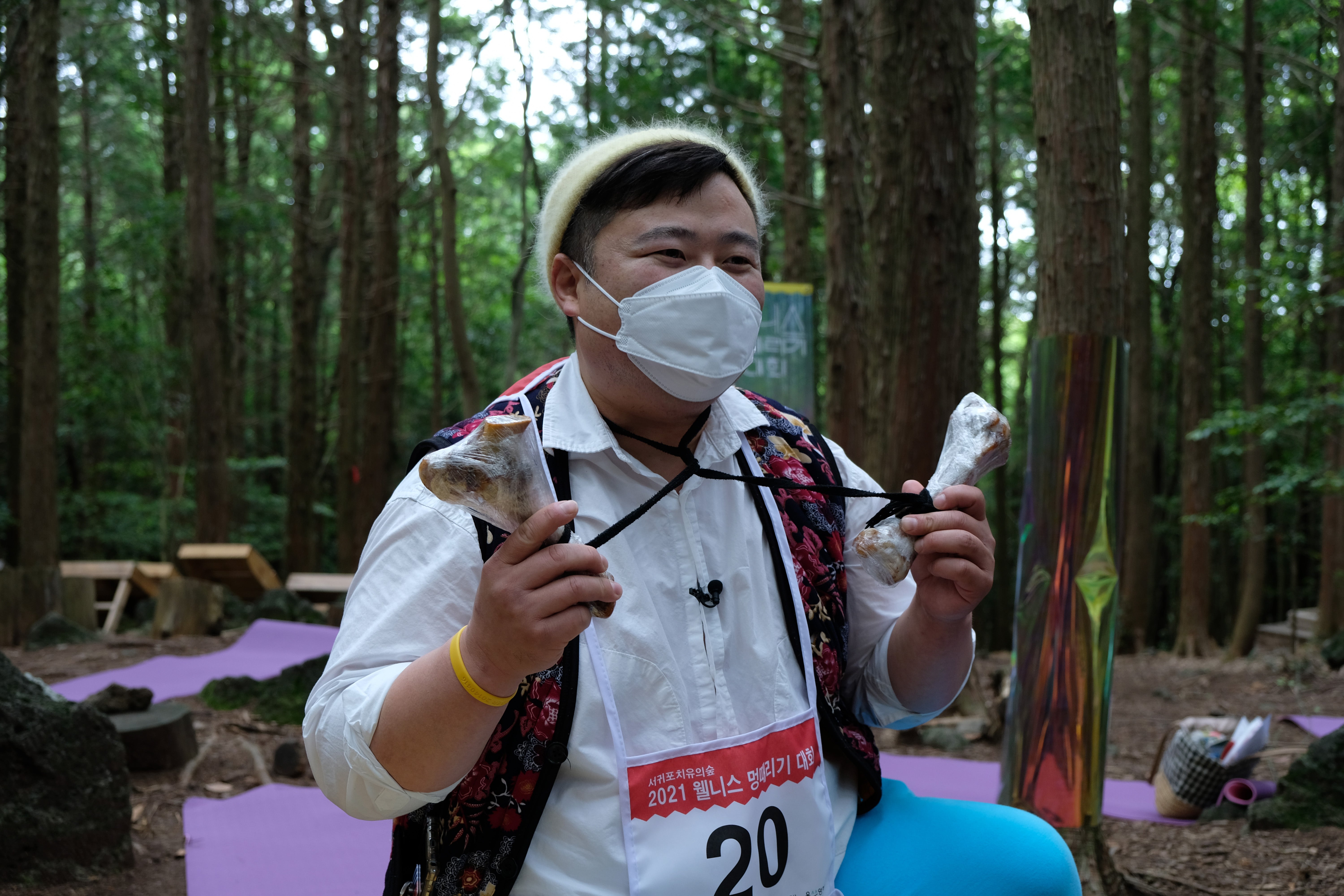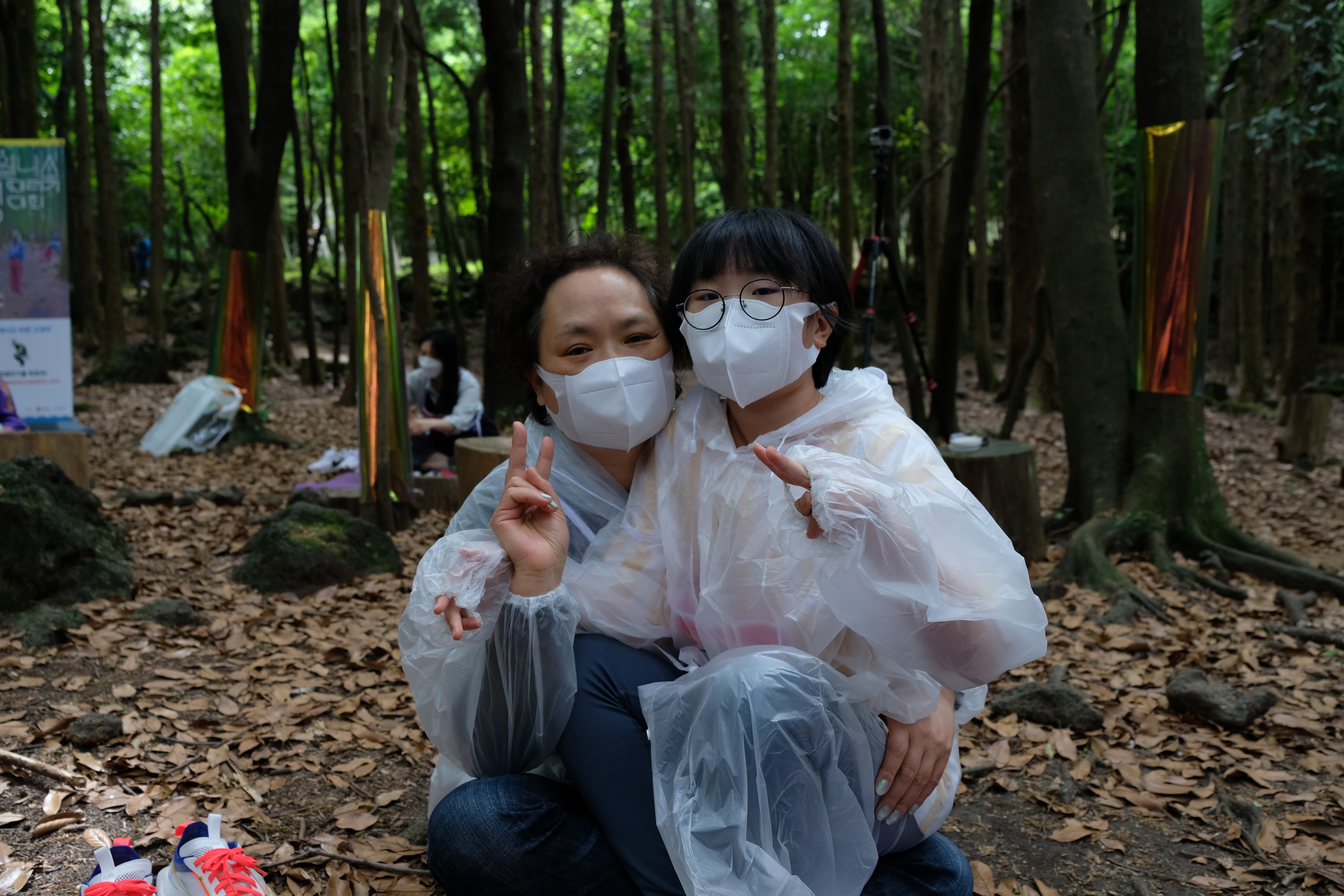Competitive relaxing? In South Korea, it’s a thing
When you think of rest and relaxation, you might not think of competition. But in South Korea, people are determined to loosen up and zone out for the top prize, writes Min Joo Kim

Your support helps us to tell the story
From reproductive rights to climate change to Big Tech, The Independent is on the ground when the story is developing. Whether it's investigating the financials of Elon Musk's pro-Trump PAC or producing our latest documentary, 'The A Word', which shines a light on the American women fighting for reproductive rights, we know how important it is to parse out the facts from the messaging.
At such a critical moment in US history, we need reporters on the ground. Your donation allows us to keep sending journalists to speak to both sides of the story.
The Independent is trusted by Americans across the entire political spectrum. And unlike many other quality news outlets, we choose not to lock Americans out of our reporting and analysis with paywalls. We believe quality journalism should be available to everyone, paid for by those who can afford it.
Your support makes all the difference.Organisers of South Korea’s annual competition to be the best at doing nothing – seriously, nothing – needed just the right spot for the work-from-home parents, remote-learning students and others wary of the pandemic.
So what could be better than a “healing forest” on the southern island of Jeju? The woodlands are known as a site for other therapeutic programs.
Twenty-eight pandemic-battered competitors gathered under the leafy canopy for the Space Out Competition. The premise is simply: zone out for 90 minutes, with the winner having the lowest and most stable heart rate. Spectators also cast votes for the top three who displayed the best Zen. (A Jeju-based hairstylist, who barely moved during the 90 minutes, won.)
South Korean artist Woopsyang created Space Out in 2014 as a pushback against South Korea's fast-paced and high-pressure society. It has since spread to other places such as Hong Kong and the Netherlands.
"The pandemic-hit world needs Space Out more than ever," says Woopsyang, who goes by one name. "We have a lot of downtime at our homes but we spend that time stressing over the virus and feeling anxious."
The competition made an in-person return this year. Last year, it was online. Experts say the pandemic pressures can put the body and mind into a virtual “survival mode”.
"Facing unprecedented threats of the virus, people find it hard to stay still and keep worrying about what action to take next," says Shin Dong-won, a clinical psychiatrist at Seoul's Kangbuk Samsung Hospital.
"But what the brain needs during these unusual times is a moment to space out, take a mental rest to break free of the self-perpetuating cycle of anxiety," she adds.
We spoke to three South Korean participants on why they came to the forest to space out.

Lee Ji-won (24, college student)
Her 90 minutes at the Space Out Competition is the longest time she spent doing nothing in a while.
"The coronavirus opened up a lot of free time for me, but I felt pressured to use those time effectively," she says. As a college senior majoring in social work, Lee is prepping for South Korea’s hypercompetitive job market, which is getting even tougher as many job opportunities dry up in the wake of the pandemic.
Lee’s days are heavily loaded with screen time, which has gone up further since the pandemic with online classes. And, yes, there is also lots of YouTube and "doom-scrolling" through news and social media.
She forced herself to take a break and flew to Jeju from the mainland city Gwangjufor the competition.
"This time I could really let go of myself," she says as she walks out of the Healing Forest. "I felt very refreshed."

Jwa Hyeon-guk (40, restaurant owner)
Jwa Hyeon-guk made a rare move: closing his restaurant in Jeju city for a day to take part in the Space Out.
During the pandemic, his pork-knuckle eatery switched to delivery and takeaway.
"My restaurant lost the hustle and bustle of diners and I had a lot of time to myself, but I could not spend that time in a chill manner," Jwa says.
The restaurateur says he was staring at his phone for many hours, checking customer reviews of his restaurant on delivery apps and mulling over things such as how to improve takeaway packaging.
A bad customer review online could lead him to speculate all the things that could have gone wrong – what he describes as a vicious circle of negativity.
“It is hard not being able to interact with customers directly,” he said. “I miss keeping busy with customers who come to dine at my restaurant and having friendly exchanges with them in person.”
During South Korea's third wave of coronavirus in November and December last year, restaurant sales dropped by more than a third compared to the same period in 2019, according to South Korean government data.
Jwa says he is going to try to stop thinking about his business and simply stare into the void for the day at the competition. "It's difficult these days, but I know the good days will eventually come."

Youn Kyoung-won (53, retailer)
Youn Kyoung-won, who runs a business selling fruit compote, accompanied her daughter to the Space Out Competition.
Since the outbreak in South Korea, Youn was spending too much time at home in Jeju feeling “trapped”. She ran her company from home while her 12-year-old daughter, Lee Ji-hyun, took online classes in her bedroom.
Balancing work and parenting was already a double burden for Youn. She “almost become a teacher” for her daughter, who had trouble concentrating on online classes.
"I was increasingly feeling stressed and irritable, and I found myself projecting my stress onto my daughter," she says.
Her daughter suggested they take part in the Space Out competition and have a moment to unwind together.
A 2020 study by South Korea's Family and Environment Research found two-thirds of female survey-takers said the burden of child-rearing increased as family members spent more time at home.
"I can chill out here," Youn says.
© The Washington Post
Join our commenting forum
Join thought-provoking conversations, follow other Independent readers and see their replies
Comments